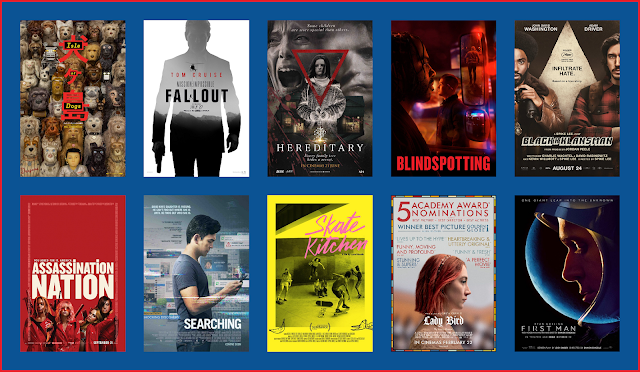Booksmart Review
(A version of this review originally appeared on kernelnow.com / mynewslike.com)
Like Jonah Hill (mid90s) and Bo Burnham (Eighth Grade) before her, Olivia Wilde is the latest in a growing line of actors to make their directorial debut in 2019 in the coming-of-age genre. The purest comedy of the three, Wilde’s Booksmart may also be the pick of the bunch. It questions the age-old adage of “All work and no play..” as Molly and Amy (Beanie Feldstein and Kaitlyn Dever) seek to reverse their boring reputations on the last day of high school – particularly when they discover their party-hard peers have been accepted into big-league colleges just like them.
If you think that sounds a bit like Superbad, then as is well-publicised - you’re not alone. Booksmart has been plagued and/or boosted by that comparison since its preview showings, though if anything this is a re-imagining more than a reproduction of that somehow-now-thirteen-year-old film. Like Superbad, the strength here is in the central duo, friends so wholesomely committed to each other that it will cause the viewer to seriously question what they know about popularity and value. Feldstein in particular seems to have a bright future in comedy, having previously starred in Bad Neighbors 2 and last year’s adolescent success Lady Bird – though it’s Billie Lourd’s Gigi who gets the real star turn here. Like Brad Pitt in True Romance she steals every scene she’s in, hitting every comedic note perfectly as she breezes her way in and out of the story in a possibly drug-fuelled haze.
 | |
| That's Gigi (Billie Lourd, left) and she's your best friend now (source: Annapurna Pictures) |
 |
| Who gave you permission to be this hilarious? (source: Annapurna Pictures) |
If there is one criticism of Booksmart, it’s likely the fault of the California setting. An always-alien landscape to outsiders, it’s still hard to believe that an entire generation of kids from just one school would all have the resources to attend high level universities and throw premium parties to celebrate. It’s a hyper-real setting, yes – but it does sometimes risk alienating large swathes of viewers unaccustomed to the “high life” after doing so much to make their experience relatable. That experience is also often more accessible than the characters within it, as it’s sometimes unimaginable that such a diversely-entertaining cast of players could all exist in the same year group.
There has been a Twitter push by Wilde and her peers to encourage cinemagoers to watch Booksmart to support both low-budget film-making and female-led story-telling and, for those reasons alone, the film warrants a look. Take it from this review, though: Booksmart should demandyour attention because it’s relentlessly funny, because it has a cast on the precipice of red-hot careers, and because you’ll never look at a stuffed panda the same way again.
 |
| An eye for the ladies (source: Annapurna Pictures) |
Curious? You should be.



Comments
Post a Comment